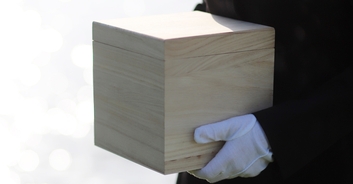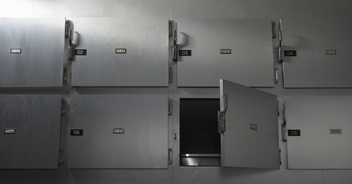It's no secret that deathcare in its current form is extremely bad for the environment.
The process of embalming, as per the New York Post, releases many toxins into the environment and that's not to mention the clouds of smoke which billow from cremation machines around the world on a daily basis. Burials themselves often take up much-needed land, and that's why people are now looking to more environmentally friendly green burials.
And one of these new options is a 'human compost' funeral, which, quite literally, does what it says on the tin (or, in this case, urn).
This relatively new burial method was promoted by Lynne Carpenter-Boggs, a professor of soil science and sustainable agriculture at Washington State University, at the American Association for the Advancement of Science conference in Seattle on Sunday. It has also been promoted online as part of the relatively unknown death positivity movement, which champions green burials.
As per the Guardian, Carpenter-Boggs said: "Death certainly isn't the biggest environmental impact we have in our life process. But we can still look for new alternatives."
She made this statement after Washington became the first state in the US to legalize human composting, CNN reports, and it is likely that many other states and nations will follow suit.

Human composting works by placing a corpse inside a reusable hexagonal steel container. The body is accompanied by wood chips, alfalfa, and straw, and the internal conditions are carefully monitored to turn it into two wheelbarrows worth of compost within four to six weeks.
"It's a bit of a surprise that when the microbial activity starts up and there's enough feedstock, a whole different class of organisms, called thermophilic organisms, become active," Carpenter-Boggs continued.
In a pilot, it was discovered that every part of the human form, including bones and teeth, can be successfully transformed into compost. What's more, is that human composting requires an eighth of the energy of cremation.
However, human composting isn't the only alternative body disposition technique that's been proposed as a green burial. So too has alkaline hydrolysis, which is sometimes known as water burial. It involves placing the body in a tank of water and potassium hydroxide. After just four hours at a temperature of 150°C, only bones remain.
Per the Guardian, Sandy Sullivan, the founder of the Leeds-based company Resomation, which manufactures liquid cremation machines and sells them in the US, said of the process which is not currently legal in the UK: "I think it's a more gentle process than burning. Families are choosing it mostly because they see it as gentler."





